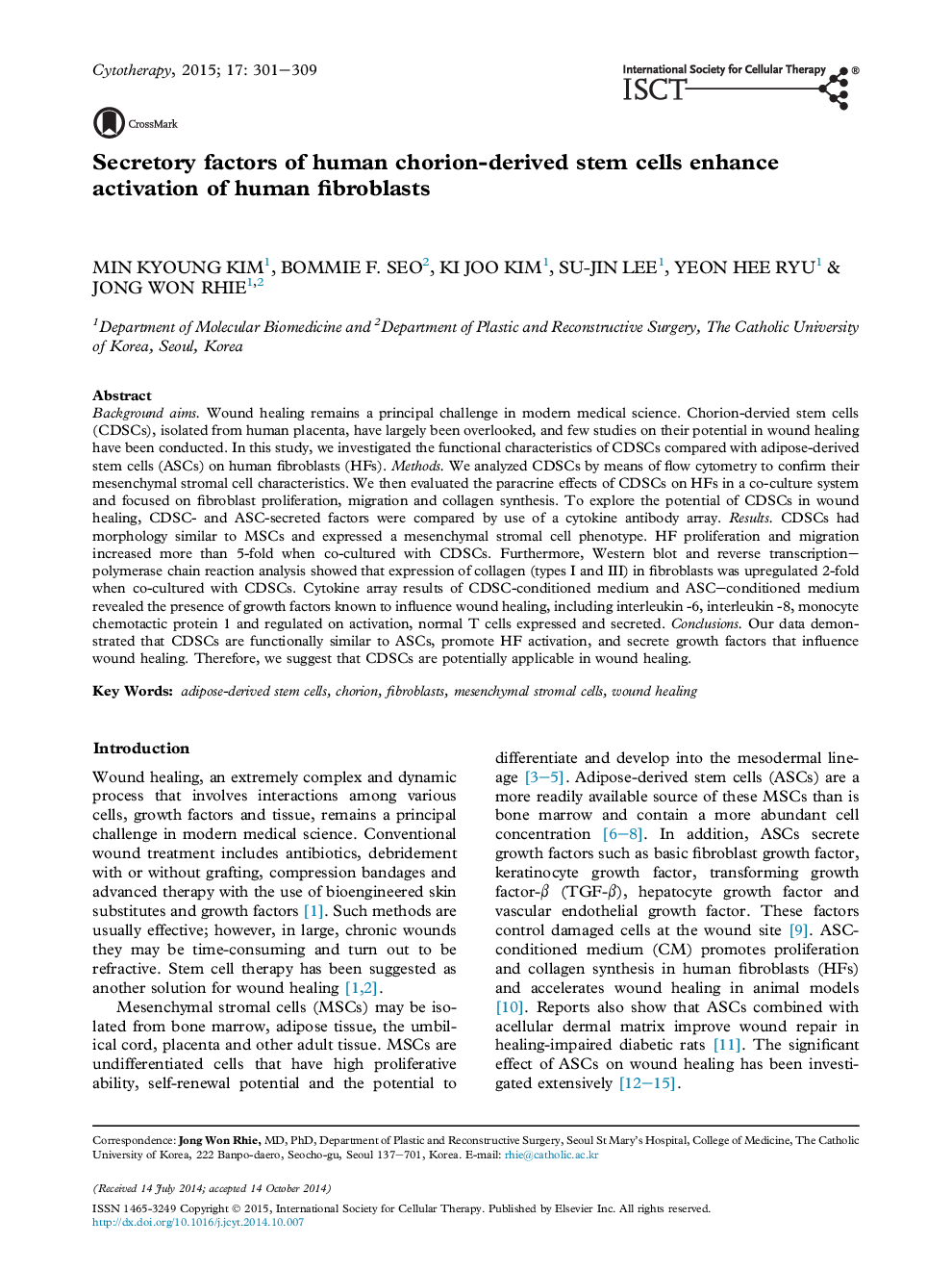| Article ID | Journal | Published Year | Pages | File Type |
|---|---|---|---|---|
| 2171204 | Cytotherapy | 2015 | 9 Pages |
Background aimsWound healing remains a principal challenge in modern medical science. Chorion-dervied stem cells (CDSCs), isolated from human placenta, have largely been overlooked, and few studies on their potential in wound healing have been conducted. In this study, we investigated the functional characteristics of CDSCs compared with adipose-derived stem cells (ASCs) on human fibroblasts (HFs).MethodsWe analyzed CDSCs by means of flow cytometry to confirm their mesenchymal stromal cell characteristics. We then evaluated the paracrine effects of CDSCs on HFs in a co-culture system and focused on fibroblast proliferation, migration and collagen synthesis. To explore the potential of CDSCs in wound healing, CDSC- and ASC-secreted factors were compared by use of a cytokine antibody array.ResultsCDSCs had morphology similar to MSCs and expressed a mesenchymal stromal cell phenotype. HF proliferation and migration increased more than 5-fold when co-cultured with CDSCs. Furthermore, Western blot and reverse transcription–polymerase chain reaction analysis showed that expression of collagen (types I and III) in fibroblasts was upregulated 2-fold when co-cultured with CDSCs. Cytokine array results of CDSC-conditioned medium and ASC–conditioned medium revealed the presence of growth factors known to influence wound healing, including interleukin -6, interleukin -8, monocyte chemotactic protein 1 and regulated on activation, normal T cells expressed and secreted.ConclusionsOur data demonstrated that CDSCs are functionally similar to ASCs, promote HF activation, and secrete growth factors that influence wound healing. Therefore, we suggest that CDSCs are potentially applicable in wound healing.
